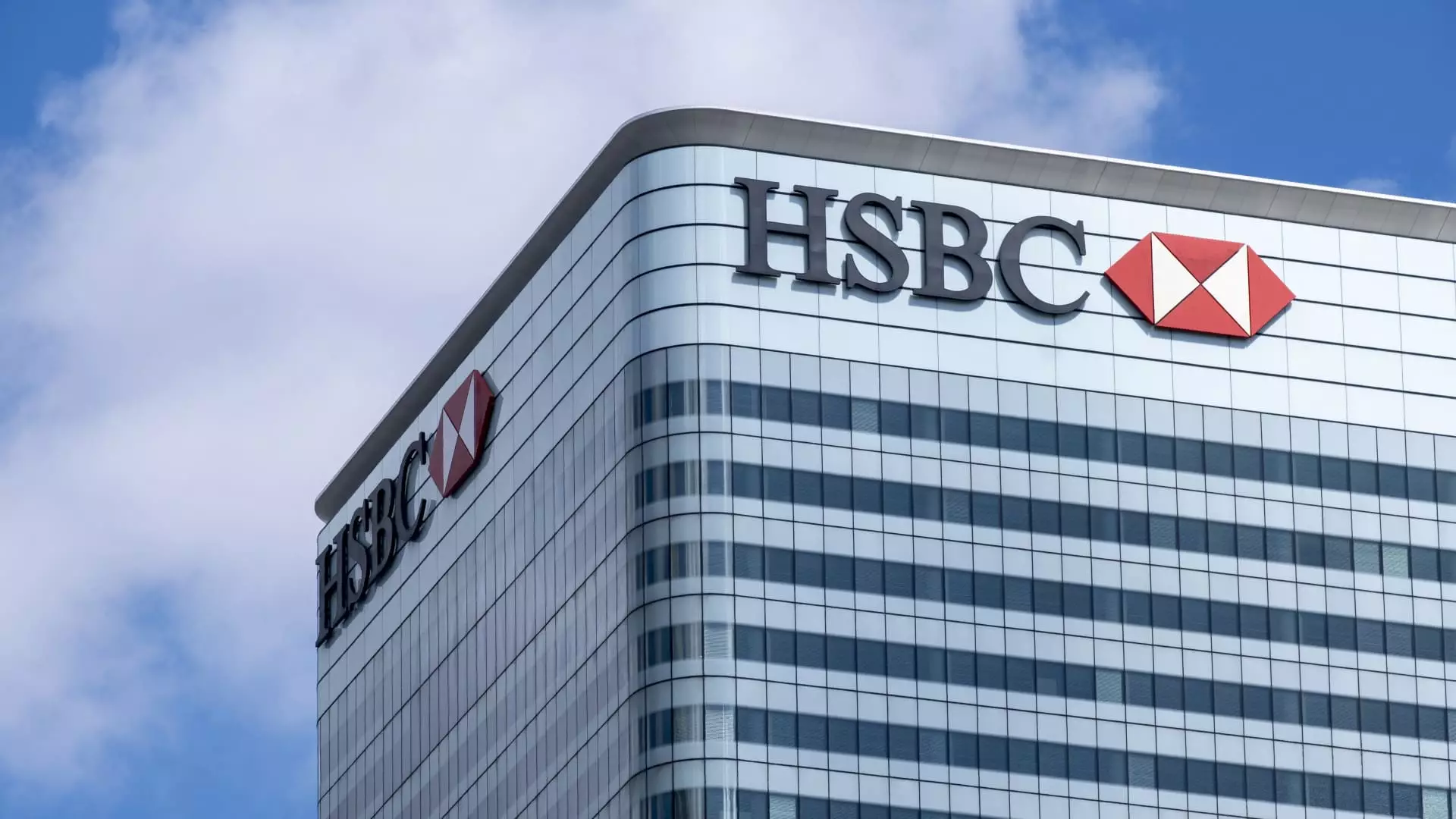HSBC, Europe’s largest banking institution, has recently made headlines with its impressive third-quarter earnings report. On Tuesday, it announced a share repurchase program worth up to $3 billion, coinciding with a financial performance that exceeded analyst expectations. The bank reported pre-tax profits of $8.5 billion and revenues of $17 billion, demonstrating a significant increase from the previous year. In the face of evolving market conditions, HSBC’s resilience is driven by robust growth in its wealth and personal banking sectors. Such results indicate a well-executed strategy that positions the bank favorably amid a changing landscape in the financial industry.
The reported figures reveal a 10% jump in pre-tax profits compared to $7.71 billion just a year prior. Additionally, profit after tax rose to $6.7 billion, an increase that underscores the bank’s capacity to leverage its core competencies effectively. This performance sheds light on HSBC’s potential to navigate the challenges of a shifting economy where rising interest rates could have otherwise hampered profitability.
Share Buyback and Investor Confidence
The $3 billion share repurchase announced as part of this earnings release reflects HSBC’s commitment to enhancing shareholder value and demonstrates confidence in its operational strength. Cumulatively, this buyback brings the total for the year to an impressive $9 billion, an indication of sustained optimism by the bank’s management. Not only does this strategy signal positive future prospects, it also showcases HSBC’s financial health and willingness to invest in its own equity.
Furthermore, the bank’s board has approved a third interim dividend of $0.1 per share, evidencing an ongoing commitment to returning profits to its shareholders. Such moves are significant in fostering long-term investor confidence, particularly in turbulent markets where banks might otherwise be conservative with capital distribution.
While the earnings report exhibited positive growth, it also highlighted an increase of 2% in operating expenses compared to the same quarter last year. Rising costs can often be a concern for investors, signaling potential inefficiencies within the company’s operations. However, HSBC’s strategic investment in technology to enhance operational capabilities and streamline services suggests a forward-thinking approach to managing expenses.
This proactive stance is particularly relevant in light of recent reports hinting at potential cost-cutting measures that could save up to $300 million. Under the leadership of new CEO Georges Elhedery, HSBC is undergoing significant restructuring aimed at creating a more efficient operational framework. The revamping of its organizational structure into four business units is designed to reduce duplication in processes and enhance decision-making efficiency. Such an agile operational model will likely serve HSBC well in a competitive banking environment.
Navigating Interest Rate Pressures
Amidst these developments, it’s essential to consider the external economic landscape, particularly regarding interest rates. The past few years have witnessed rising rates that have benefited banks like HSBC through increased net interest income. However, analysts have expressed caution, noting the potential for declining profitability as the rate cycle comes to a close. Despite this, HSBC reported stable net interest income even as net interest margins narrowed to 1.5% from 1.7% the previous year. The bank’s ability to maintain steady income levels amid these pressures indicates a robust financial framework.
Michael Makdad, a senior equity analyst at Morningstar, aptly described HSBC’s earnings as “solid, with no major surprises.” This sentiment reflects a growing consensus among analysts that HSBC is executing an adept strategy amidst challenging market conditions.
Looking forward, HSBC’s restructuring plan is poised for implementation in January and is expected to create a more dynamic and responsive organization. With its newly appointed leadership and a clear roadmap for financial and operational improvement, HSBC stands at a pivotal moment in its corporate journey. The bank’s strategic focus on wealth management alongside cost cutting and operational efficiency could position it strongly for the future, allowing it to adapt quickly to new macroeconomic realities and investor demands.
HSBC’s third-quarter results reveal a blend of strong financial performance and strategic foresight, bolstering its status as a leading player in the banking sector. The bank’s ongoing commitment to enhance shareholder value, coupled with a prudent approach to cost management, underscores its capability to thrive in a complex and evolving market landscape.

Leave a Reply